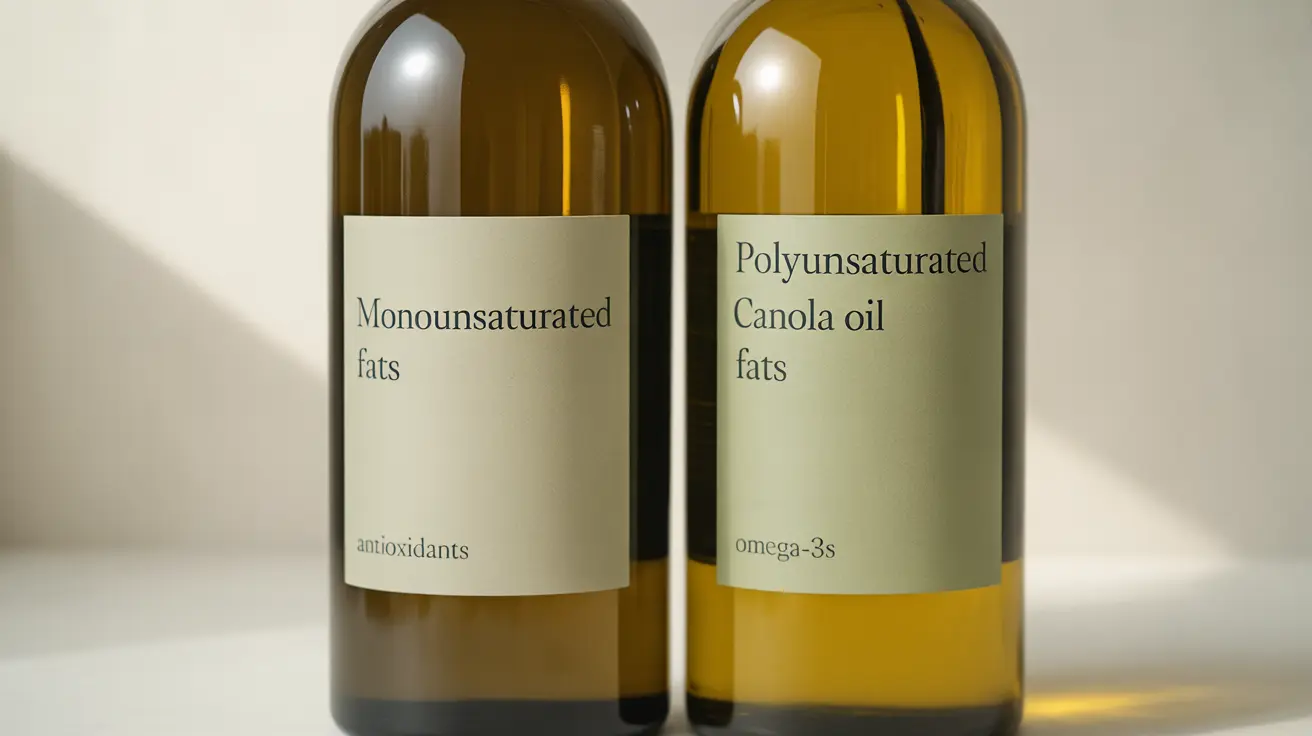When it comes to choosing healthy cooking oils, both canola oil and olive oil are popular options that often compete for space in our kitchen cabinets. Each oil brings its own unique nutritional profile and cooking characteristics to the table, making the choice between them an important consideration for health-conscious consumers.
Understanding the key differences between these two oils can help you make informed decisions about which one to use in your daily cooking and food preparation. Let's explore their nutritional content, health benefits, and best uses in the kitchen.
Nutritional Profiles Compared
Canola oil and olive oil differ significantly in their nutritional composition, particularly in their fatty acid profiles. Olive oil is rich in monounsaturated fats, specifically oleic acid, while canola oil contains a blend of both monounsaturated and polyunsaturated fats, including omega-3 fatty acids.
Fat Composition Breakdown
Olive oil contains:
- 73-75% monounsaturated fats
- 13-15% saturated fats
- 10-12% polyunsaturated fats
Canola oil contains:
- 60-65% monounsaturated fats
- 7% saturated fats
- 28-33% polyunsaturated fats, including omega-3s
Health Benefits and Heart Health
Both oils offer distinct cardiovascular benefits, but they work in slightly different ways. Olive oil's high antioxidant content, particularly from compounds called polyphenols, helps reduce inflammation and protect against heart disease. These compounds are especially abundant in extra virgin olive oil.
Canola oil's lower saturated fat content and higher omega-3 fatty acid levels can help maintain healthy cholesterol levels and support heart health. However, it generally contains fewer antioxidants compared to olive oil.
Cooking Properties and Uses
Smoke Point Considerations
Canola oil has a higher smoke point (400-450°F) compared to extra virgin olive oil (325-375°F), making it more suitable for high-heat cooking methods like deep frying and stir-frying. Regular refined olive oil, however, has a higher smoke point than extra virgin olive oil.
Best Applications
Olive oil excels in:
- Cold applications like salad dressings
- Light sautéing
- Dipping oils
- Flavor enhancement
Canola oil works well for:
- High-heat cooking
- Deep frying
- Baking
- Neutral-flavored applications
Antioxidant Content and Quality
Olive oil, especially extra virgin varieties, contains significantly higher levels of beneficial antioxidants compared to canola oil. These antioxidants, including vitamin E and polyphenols, contribute to olive oil's anti-inflammatory properties and potential health benefits.
Frequently Asked Questions
What are the main nutritional differences between canola oil and olive oil?
The main differences lie in their fat composition and antioxidant content. Olive oil has more monounsaturated fats and antioxidants, while canola oil has more polyunsaturated fats and omega-3 fatty acids.
Which oil is healthier for heart health, canola oil or olive oil?
Both oils support heart health, but olive oil, especially extra virgin varieties, has shown stronger evidence for cardiovascular benefits due to its higher antioxidant content and beneficial compounds.
Can I use olive oil and canola oil interchangeably for cooking and salad dressings?
While they can be substituted in some cases, each oil has its ideal uses. Olive oil is better for cold applications and light cooking, while canola oil is better suited for high-heat cooking methods.
How do the antioxidant levels in olive oil compare to those in canola oil?
Olive oil, particularly extra virgin varieties, contains significantly higher levels of antioxidants compared to canola oil, including beneficial compounds like polyphenols and vitamin E.
Is canola oil better than olive oil for high-heat cooking?
Yes, canola oil is generally better for high-heat cooking due to its higher smoke point (400-450°F) compared to extra virgin olive oil (325-375°F).




